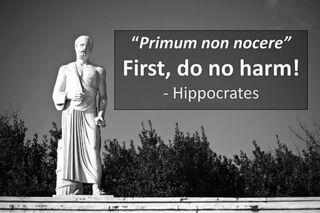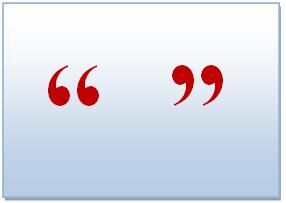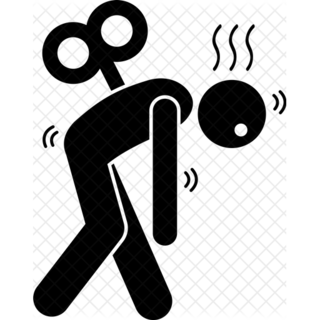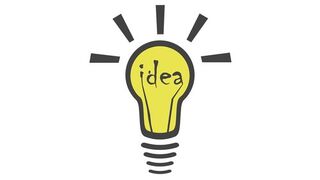
Yesterday, I wrote about considerations in deciding whether to have a baby. Today, I turn to the opposite pole: ending one’s life. My Psychology Today article today offers a composite letter and my response.

Yesterday, I wrote about considerations in deciding whether to have a baby. Today, I turn to the opposite pole: ending one’s life. My Psychology Today article today offers a composite letter and my response.

My Psychology Today article today offers a composite letter describes concerns that my clients have raised, plus my response to each.

Hippocrates said, “First, do no harm.” That time-honored entreaty has implications far beyond medicine. But my Psychology Today article today starts there.

Twice, I've reviewed Psychology Today’s Essential Reads to find nuggets that might particularly benefit readers of this How to Do Life blog, plus my amplifications. Here's the link to the first and to the second.
Since the previous effort, 900 new Essential Reads have been published. From those, my Psychology Today article today offers 12 nuggets plus my additions.
Being Out-of-Step: That's my latest podcast: https://how-to-do-life.simplecast.com/episodes/episode

People in their 20s who are back living with parents aren't necessarily lazy.
My Psychology Today article today offers a range of tips for helping you or someone you care about to take steps forward.
Here's episode 27 of my podcast and YouTube video, How to Do Life:: When You're Out of Step.

I’m honored to have a couple hundred of my statements quoted on quotation websites. Here are 31 that might be particularly useful:
Career
A career is like a suit of clothes: To look its best, it must be tailored and accessorized. For example, if you’re a helping professional, what specialty would make you most helpful? Whatever your career, should you try to get your job description tweaked?
What skill of yours has given you the most success? Use it more. Don’t know? List your few most significant accomplishments. Any common threads?
In managing (and parenting), praise when you can, and when you can’t, try invoking guilt, e.g., “I know you’re better than this.”
If you have a clearly good idea, to avoid getting talked out of it, get input only on how to better execute it.
Motivation
The most powerful motivator may not be fear – People go back to bad habits even after a heart attack. Could the most powerful motivator be to prove oneself right?
When overwhelmed, after doing any needed planning, just stay in the moment and put one foot in front of the other.
To boost motivation: what’s your next 1-second task? It feels good to get even a tiny part done, make progress, and perhaps learn something that will facilitate further progress.
We hear stories of persistence that is rewarded yet for each of those, many people have pressed on only to end up broken or broke.
Might you be wise to focus more on self-acceptance than on self-improvement? That might even motivate you to improve.
Self-Esteem
To boost self-esteem, accept that you’re flawed like everyone, do what you’re good at, and accomplish: Even little wins boost self-esteem.
School can give a false sense of confidence or of loserhood. Too often, school success doesn't predict life success.
Personal Growth
A valuable way to spend a dollar? A memo pad. Keep it with you at all times. Think of ideas. Write them down. Implement them.
If you want to lock in a new attitude or behavior, say and/or write it and why. Then keep paraphrasing, not reading it. If you just read it, it won’t penetrate any more than the Pledge of Allegiance recited by school children.
Books that assert, “If it worked for me, it can work for you” often aren’t helpful because typical readers are less efficacious than authors are.
Communication
Talking too much is a relationship and career killer. Keep most utterances to under 45 seconds and in dialogue, speak a bit less than half the time.
Before making an argument, ask a likely opponent to lay out the counterargument. Your argument can then incorporate that.
Scratch the surface of thinking ideologues and you’ll likely find doubts. Ask, “Ever wondered whether the other side might be right?”
It's sad that many people prefer a silly, manipulative, games-playing, selfish hottie over an ugly, intense, honest, kind person.
An important double standard: If a statement favors additional redistribution, it tends to get praised. If favoring meritocracy, it’s usually censored and/or censured.
Some people are nice to compensate for not being good.
The Life Well-Led
Far more of life’s pleasures are in the process than in the outcome. So be in the moment. I’ve written 12 books. In my first, I rushed to get it done so I could see it in print. That pleasure was but evanescent. Since then, I try to enjoy the process of writing, and that has yielded far more pleasure.
God resides within us: It is our wisest attitudes and actions.
It’s easy to be liked: listen more than talk, praise often, and disagree rarely. The question is, is it worth the loss of integrity?
Successful, productive people fuel themselves mainly with their work and accomplishment rather than through recreation.
Key to a well-led life is maximizing your contribution. Happiness, less central, is most likely found in simple pleasures.
In your desire to stand out from the horde, beware of hyping yourself, your ideas, or taking inappropriately extreme positions.
In our efforts to make everything equal, could we end up with everyone having little?
Be tough when you must, kind when you can.
Senescence is inevitable. All we can do is try to strike the balance between graceful acceptance and raging against the dying light.
It all comes down to this: Do good.
I read this aloud on YouTube.

Ten years ago, I invited seven people who I thought were wise and would do well in a group to form a Board of Advisors. Since then, we’ve met once a month by phone using FreeTeleconference.com. (We tried videoconferencing but ended up going back to the phone.)The members seem to appreciate the group's suggestions. And they must feel the being in the group is of value because five of the seven have remained through the decade, and the other two bowed out only because they had a new baby.
At tonight’s Board of Advisors meeting, I read the above to the the group and asked for their reactions. I present them in my Psychology Today article today.

My new-client questionnaire includes a question, “If you've previously had counseling, what were the results?” A number of clients have written that the counselor was nice but didn’t help much.
Of course, in the first session, I ask clients to explain. My Psychology Today article today lists the factors they most often mention.

We’ve long known that we can learn a lot about people and what they're feeling by observing their face. But what about when their face is COVID-masked up? I offer suggestions in my Psychology Today article today.

We’re all below average in some things. The question is how to deal. My Psychology Today article today fleshes out three options.

In public, we tend to act perky even if tired. But privately, especially at the end of the day, we may feel very differently.
Of course, fatigue has many causes, each with its own tactics for amelioration. I describe seven causes plus suggestions for each in my Psychology Today article today.

Many people would like to know themselves better, perhaps so they can make wiser moves. My clients have found helpful the 12 questions I list in my Psychology Today article today. For each, ask yourself, “Are there any implications for what you want to do now?”

You liked each other . . . and then, splat. There are the standard reasons: taking offense, boredom, and outgrowing the person. But today, there's a fast-growing reason: political disagreement. The latter also truncates the universe of possible new friendships. These days it seems that people mainly befriend political kindred spirits.
My Psychology Today article today offers thoughts on each:

Amid COVID, many employees are feeling increased pressure to perform well lest they become a COVID economic casualty. My Psychology Today article today offers 10 keys to employee success that are applicable across many jobs.

My Psychology Today article today presents two composite letters, one from a person who works 80 hours a
week, the other who does little work. I offer a response to each.

A mentor isn’t mainly an advice-giver, nor mainly a listener. A
mentor balances listening, facilitating, and advice-giving, and does it
in a skillful way. My Psychology Today article today describes how to do that.

“How much should I charge?” I’m often asked that by clients who are or are contemplating going into private practice.
Of course, it varies with the situation, but I typically explain
three philosophies of pricing and ask them to choose the one that feels
right. I describe them, including why I don't offer a sliding scale in my Psychology Today article today.

A number of my clients are tempted to start a business, often because they’ve been laid off because of COVID and are having a tough time landing a decent job.
I tell them that the idea is the least important part; success is
mainly about execution. Nevertheless, many of them remain eager to hear
some ideas. My Psychology Today article today offers a buffet of what I often say.